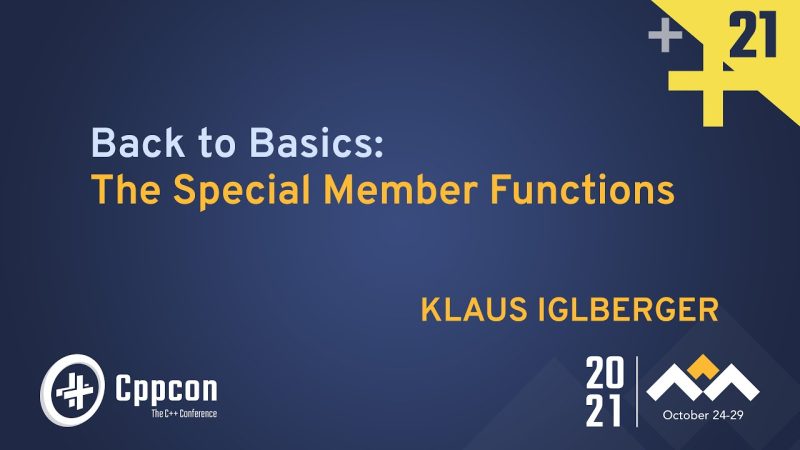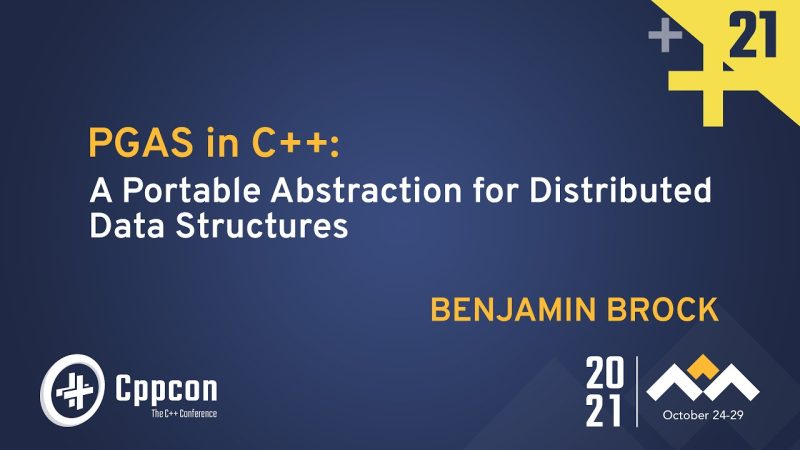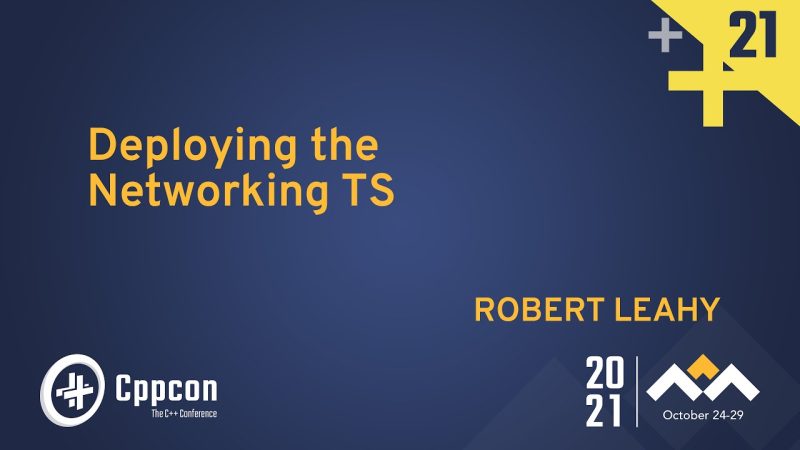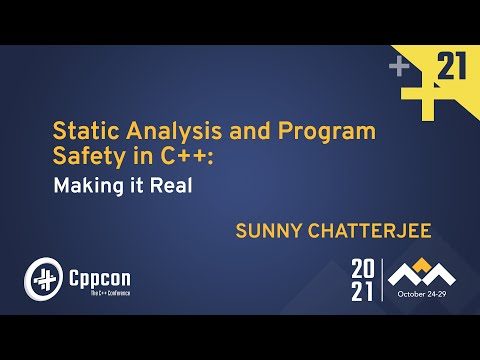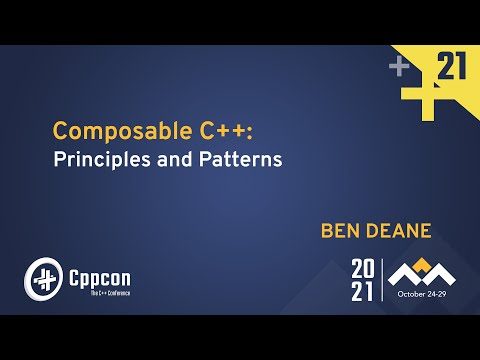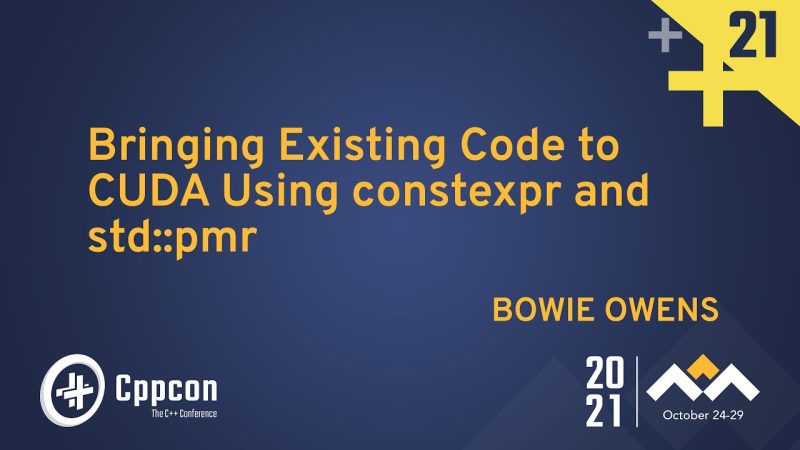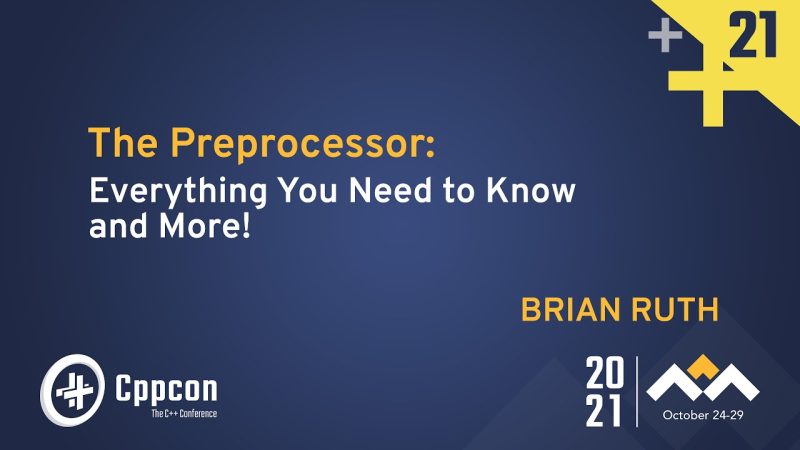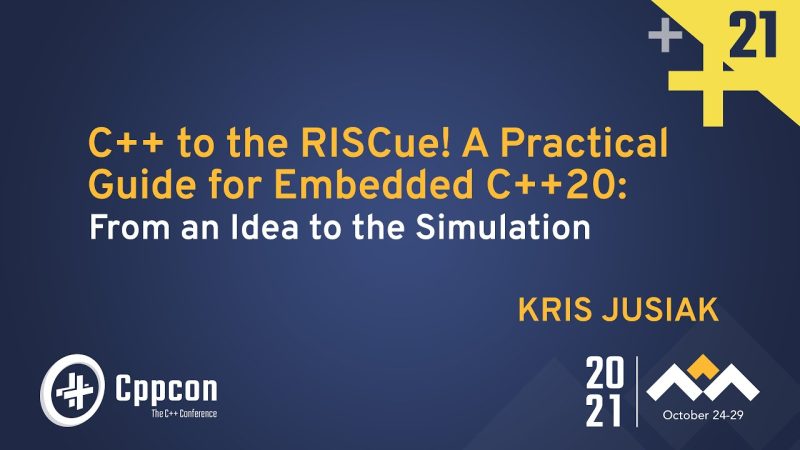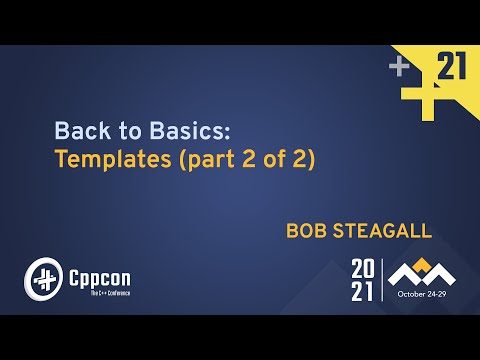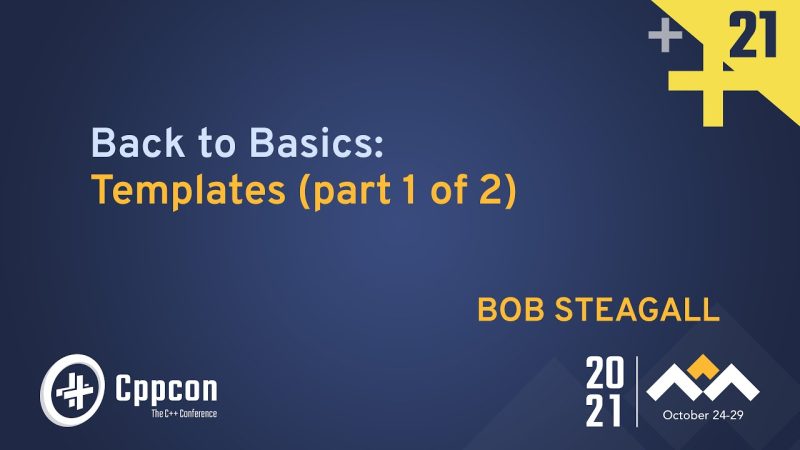https://cppcon.org/
https://github.com/CppCon/CppCon2020
---
The six special member functions. Do you know them all? Do you know when the compiler generates them for you and what they are doing? And most importantly, do you know when they don’t give you what you expect? In this talk I will explain the six special members in detail. We will take a look at the exact circumstances when a compiler would generate these functions, what they are doing by default and when we should deal with them manually. Also, among many other guidelines I’ll explain why we should strive for the Rule of 0, why the Rule of 5 is sometimes unavoidable, and why the Rule of 3 is not obsolete.
---
Klaus Iglberger
Klaus Iglberger is a freelancing C++ trainer and consultant. He has finished his PhD in computer science in 2010 and since then is focused on large-scale C++ software design. He shares his experience in popular advanced C++ courses around the world (mainly in Germany, but also the EU and US). Additionally, he is the initiator and lead designer of the Blaze C++ math library (https://bitbucket.org/blaze-lib/blaze/src/master/) and one of the organizers of the Munich C++ user group (https://www.meetup.com/MUCplusplus/).
---
Videos Streamed & Edited by Digital Medium: http://online.digital-medium.co.uk
The CppCon YouTube Channel Is Sponsored By:
JetBrains : http://jb.gg/cpptools
SonarSource: https://www.sonarsource.com/


